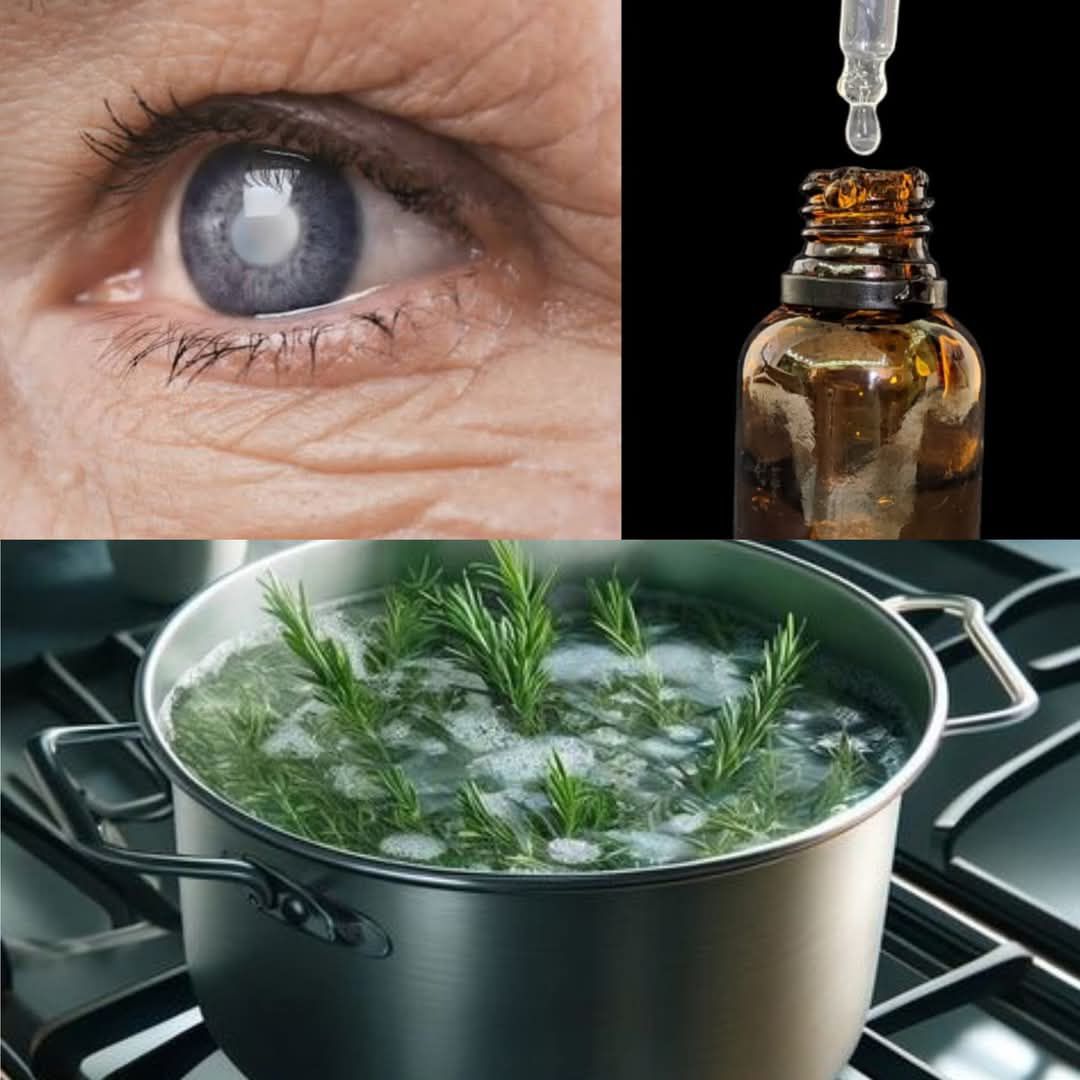
Here’s a detailed and unique article on “Rosemary for Vision: A Natural Way to Tackle Cataracts and Eye Inflammation”, including its benefits and a step-by-step guide on how to use it effectively.
Rosemary for Vision: A Natural Way to Tackle Cataracts and Eye Inflammation
Introduction
Rosemary (Rosmarinus officinalis) is an aromatic herb widely used for culinary and medicinal purposes. Known for its antioxidant and anti-inflammatory properties, rosemary has gained popularity as a natural remedy for various health concerns, including eye health. Recent studies suggest that rosemary may help combat cataracts and eye inflammation due to its powerful compounds like rosmarinic acid and carnosic acid.
If you’re looking for a natural approach to maintaining your vision, rosemary could be an excellent addition to your wellness routine. This article explores the benefits of rosemary for eye health and provides step-by-step methods to prepare and use it effectively.
How Rosemary Benefits Eye Health
1. Rich in Antioxidants
Rosemary contains rosmarinic acid and carnosic acid, which protect eye tissues from oxidative damage caused by free radicals. Oxidative stress is a major contributor to cataract formation and age-related vision problems.
2. Anti-Inflammatory Properties
Chronic inflammation is a leading cause of eye conditions such as uveitis and conjunctivitis. Rosemary helps reduce inflammation, soothing irritated eyes and preventing further damage.
3. Supports Blood Circulation
Proper blood flow is essential for nourishing eye cells and keeping them healthy. Rosemary improves circulation, ensuring that your eyes receive the necessary nutrients and oxygen.
4. Helps Reduce Cataract Progression
Studies indicate that rosemary’s natural compounds may help slow down or prevent cataract development by protecting lens proteins from oxidative damage.
How to Use Rosemary for Vision: Step-by-Step Methods
1. Rosemary Tea for Eye Health
Drinking rosemary tea is one of the easiest ways to absorb its beneficial compounds and support eye health from within.
Ingredients:
1 teaspoon dried rosemary (or 2 teaspoons fresh rosemary)
1 cup boiling water
Honey (optional)
Instructions:
Boil a cup of water and add the rosemary leaves.
Cover and let it steep for 10–15 minutes.
Strain the tea and add honey if desired.
Drink this tea once or twice daily for optimal benefits.
2. Rosemary Eye Wash
An eye wash made with rosemary can help reduce inflammation and soothe irritated eyes.
Ingredients:
1 teaspoon dried rosemary
1 cup distilled or boiled water
Instructions:
Boil the water and add the rosemary.
Let it steep for 10 minutes, then strain the liquid.
Allow the solution to cool to a lukewarm temperature.
Use a clean dropper or cotton pad to apply the solution to your closed eyelids.
Repeat twice daily to reduce inflammation and discomfort.
3. Rosemary Infused Oil for Eye Massage
Applying rosemary-infused oil around the eyes can help improve blood circulation and prevent oxidative damage.
Ingredients:
½ cup olive oil or coconut oil
2 tablespoons dried rosemary
Instructions:
Warm the oil slightly (do not overheat).
Add dried rosemary and let it infuse for at least 24 hours.
Strain the oil and store it in a clean container.
Apply a small amount around the eyes (avoid direct contact with the eyes) and massage gently before bed.
4. Rosemary Steam Therapy for Eye Comfort
Steam therapy with rosemary can help relieve eye strain and inflammation.
Ingredients:
A handful of fresh rosemary
1 liter boiling water
Instructions:
Place fresh rosemary in a bowl and pour boiling water over it.
Lean over the bowl, covering your head with a towel.
Close your eyes and allow the steam to soothe them for 5–10 minutes.
Repeat 2–3 times per week for relief from eye fatigue and inflammation.
Precautions & Considerations
While rosemary is generally safe, here are some precautions to keep in mind:
Avoid direct contact with the eyes: Never apply rosemary oil or tea directly into your eyes. Use only around the eyes or as a rinse.
Consult a doctor if pregnant or on medication: Rosemary may interact with certain medications or be unsafe during pregnancy in large doses.
Perform a patch test: If using rosemary-infused oil, test on a small skin area before applying near the eyes.
Conclusion
Rosemary offers a natural and effective way to support eye health, potentially helping to slow cataract progression and reduce inflammation. Whether consumed as a tea, used as an eye wash, applied as an infused oil, or inhaled as steam therapy, this powerful herb can be a beneficial addition to your daily routine.
If you experience persistent eye issues, always consult an eye specialist for proper diagnosis and treatment. However, incorporating rosemary into your lifestyle may serve as a complementary, natural approach to maintaining clear and healthy vision.
Would you like to explore more natural remedies for eye health? Let us know in the comments!
Let me know if you need any modifications or additional information!
